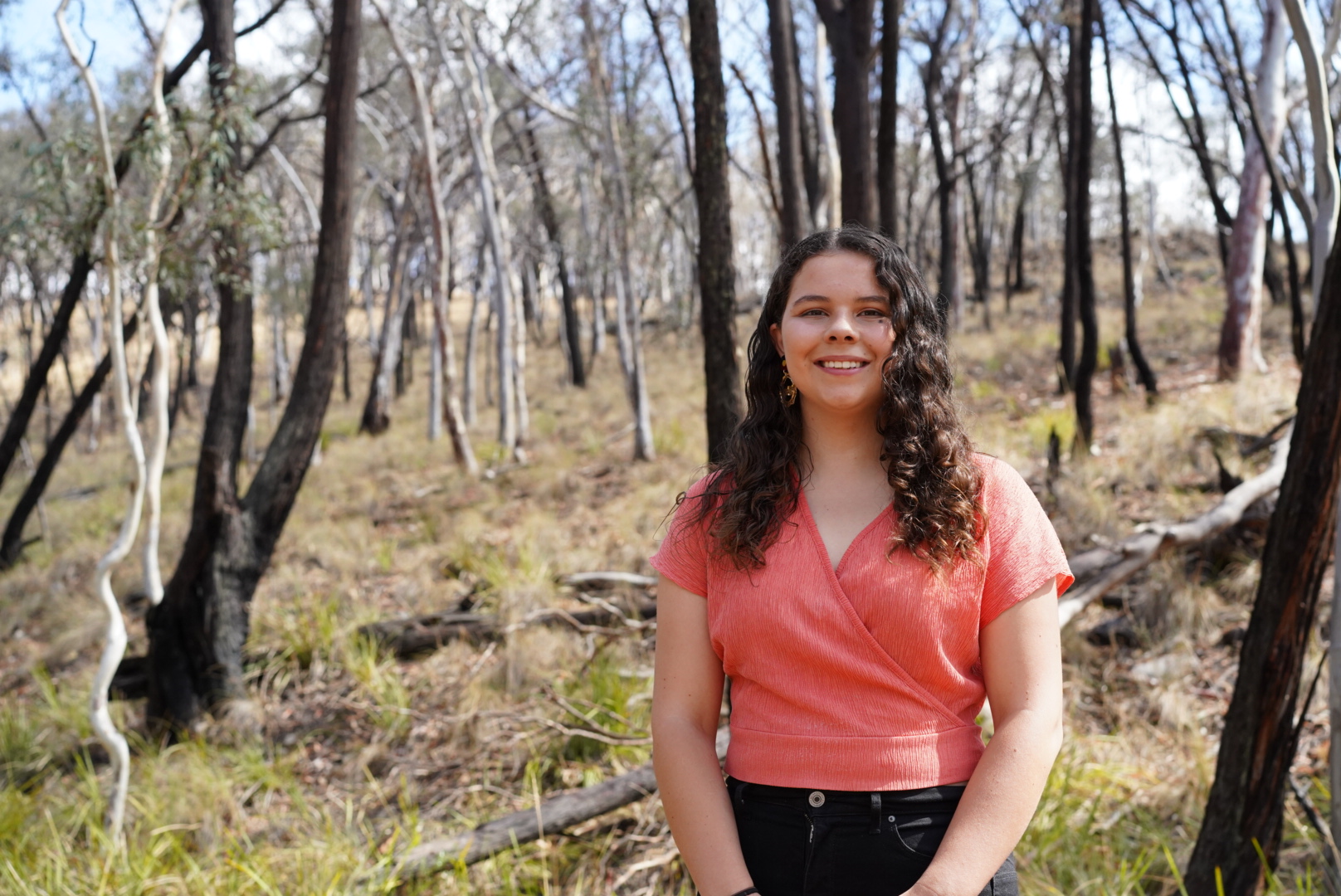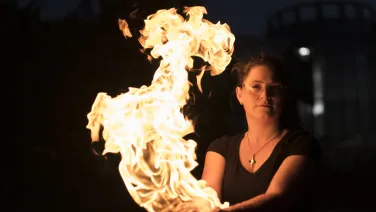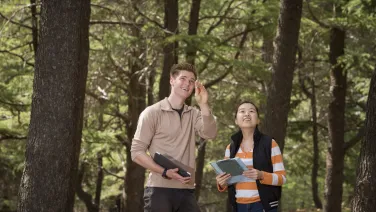‘I realised I had a voice that adds value’: climate activist on her way to ANU

As students return to campus, we speak to a new arrival, Dhani Gilbert, who is about to start a Bachelor of Science/Bachelor of Environment and Sustainability flexible double degree, focusing on conservation biology and science communication.
We meet at the base of Black Mountain, across the road from ANU. After a relentless month of smoke and fire, it is finally raining. Nearby, a creek bubbles through native grasses as we shelter under tall eucalypts and watch reinvigorated wildlife.
The last time I saw Dhani, it was in a very different environment: she was on the stage at the Canberra School Strike for Climate, addressing a crowd of 15,000 people.
“I used to cry whenever I had to do public speaking, even in front of my classmates”, she comments.
Having seen her there, determined and proud, it is hard to imagine her trembling at the thought of getting on stage.
“I think a big part of overcoming that was realising I had a voice which adds value, and that no one could really articulate what I wanted to say, the same way I could,” she says.
The powerful words Dhani shared with the Canberra community—about the importance of First Nations stewardship of land in the fight against climate change—were delivered just months before Australia’s inferno of a summer began.
I ask her how these bushfires affected her as a scientist, activist and a Wiradjuri woman.
“The truly heartbreaking thing is the loss of life. Not only the people we've lost in fires, but the wildlife. So much of Australia's biodiversity is now gone.
“It is also difficult to come to terms with the fact that these effects could have been partially managed and reduced with proper land care through cultural or ‘cool’ burning.
“Science can be this faraway subject which, for some people, has no impact on their day-to-day life. They might think ‘Well, I actually don't understand this and I don't see why it's important for me’.
“This is the case especially for First Nations people. Science is sometimes really foreign and it disregards what they know, when really it should be able to work with what they know.”
Dhani is also passionate about empowering young people to embrace leadership and is currently helping to organise the first land care youth summit at Parliament House.
“As young people, we're constantly told that we can't do things: that we’re too young, we don't have enough experience, or we don't understand things enough to be able to actually make a difference.
“So I really hope that some of the conversations that come out of this summit are around realising you do actually have the skills, the experience, and the understanding to make a major change in this field.”
Dhani’s passion for young leadership extends to her role in community. Last year, she initiated ‘Waybarra’, a regular weaving workshop for girls entering years 11 and 12.
“The project is designed to provide a space for girls, to have those connections as they’re coming into college”, explains Dhani.
“I worked with a master weaver, Aunty Jenny Dries, to learn how to weave, and then also learn how to teach people to weave. It was a huge endeavour, but so worth it.
“It was amazing to see these young women shift in the way they looked at community and college. There were some girls who, at first, didn’t want to go to college at all, but by the end thought, you know what, college might not be so bad.”
Dhani believes that community learning is really about learning from everyone. Smiling, she recounts a moment from a tour she led at Mulligans Flat Woodland Sanctuary while working as a guide:
“A little girl asked me ‘How old are you?’ I told her I was 17 and she was like, ‘Have you finished school?’ And I said, ‘Nah I'm still in school’. She looked at me and said ‘How can you understand all this stuff if you haven't even finished school yet?!’”
“I said, ‘Well, actually, you can understand this stuff, too. It just takes time and learning. And remember that, actually, what you know now is also really important.’”
If you want to follow in Dhani's footsteps, consider a Flexible Double Degree in science at ANU.




